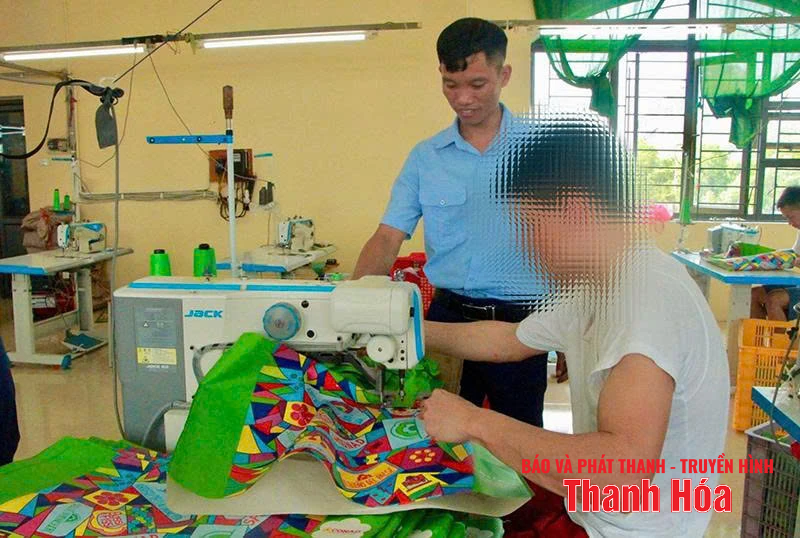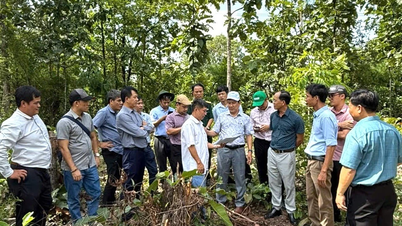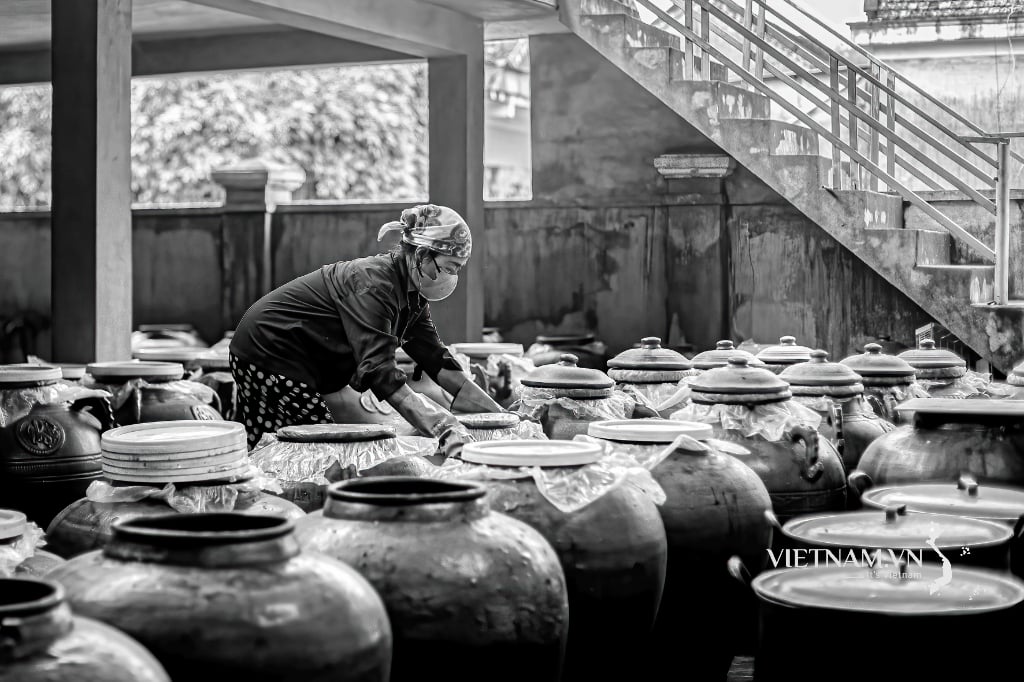Students are instructed by staff to learn bag sewing at Thanh Hoa Drug Rehabilitation Center No. 1.
Trinh Di TL, 20 years old, from Xuan Tin commune, has been treated for withdrawal, is undergoing labor therapy and learning sewing. With the dedicated guidance of the center's staff, he has been able to produce PP bags for export and disposable bags. TL said: "Previously, due to dropping out of school early, not having a job, and being lured by bad people, I became addicted to drugs at the age of 16. When I was brought here for compulsory drug rehabilitation, I saw that the facility trained many jobs for students. Realizing that sewing was suitable for me in the future, I decided to study it. Through the vocational training session, I hope that when I return to reintegrate into the community, I can find a stable job for myself, so that my family can feel secure and become a useful person for society."
Thanh Hoa Drug Rehabilitation Center No. 1 is currently managing 571 drug addicts. When returning to normal life, students are very likely to relapse due to lack of jobs, support from the community and vocational skills. To help students find jobs when returning to normal life, the facility has introduced many occupations to teach students. In addition to the effect of training skills, production activities also support and improve the effectiveness of treatment and drug rehabilitation.
Over the past time, the facility has developed a labor therapy schedule that is in accordance with regulations and reasonable for each specific group of subjects. Accordingly, depending on each health condition, students are arranged into groups to carry out vocational training and production labor. The occupations that currently attract many students to participate in are: sewing export bags, disposable bags; growing vegetables, raising livestock, cleaning the landscape environment, carpentry... The facility has coordinated with vocational schools in the area to train students. With the dedication and enthusiastic guidance of police officers and soldiers, along with the staff of the facility, it helps students increase their opportunities to find jobs or create jobs for themselves, stabilize their lives when returning to reintegrate into the community, and minimize the rate of relapse.
Currently, the facility is organizing vocational training, granting certificates to students and dividing students into occupational therapy teams with occupations suitable to the health and needs of the students. During the rehabilitation period, most students feel that participating in labor helps them understand the value of labor, thereby having positive thinking, more motivation, and determination to quit.
Major Le Dinh Ninh, Deputy Head of Thanh Hoa Drug Rehabilitation Center No. 1, said: “We have proactively advised the unit leaders to soon complete the organizational structure, continue to coordinate with organizations, individuals, and companies located in the area to provide additional training in occupations such as: motorbike repair, hair cutting, cooking... At the same time, coordinate with functional agencies to organize career guidance and introduce jobs for students preparing to reintegrate into the community after completing the rehabilitation period and returning to their locality. Thereby, students can learn about occupations suitable to their abilities and the current needs of the social labor market to orient themselves to the most suitable job. From there, they can rebuild a new life, stay away from drugs and become useful citizens to society after reintegrating into the community”.
In addition, the facility also closely coordinates with the commune police to monitor and evaluate the trainees after reintegration into the community. Through the work of grasping and exchanging with the local police, from March 1, 2025 to now, Thanh Hoa Drug Rehabilitation Center No. 1 has had more than 100 trainees reintegrating into the community, of which 5 people have relapsed into drug use. This shows that the trainees after drug rehabilitation have reintegrated very well, have stable jobs and gradually stay away from drugs.
"In order for post-rehabilitation management to be truly effective and contribute to preventing relapse, the local authorities and police forces with people reintegrating into the community need to step up propaganda and mobilize businesses to recruit this trained workforce, and at the same time, propagate so that people no longer discriminate against former drug addicts so that they can soon reintegrate into the community. In addition, post-rehabilitation drug addicts need to have the will to make efforts, especially, they need cooperation from their families and sharing from businesses when accepting these subjects to work," Major Le Dinh Ninh added.
Article and photos: Minh Khanh
Source: https://baothanhhoa.vn/de-hoc-vien-sau-cai-nghien-co-nghe-256969.htm
























































![[Maritime News] Two Evergreen ships in a row: More than 50 containers fell into the sea](https://vphoto.vietnam.vn/thumb/402x226/vietnam/resource/IMAGE/2025/8/4/7c4aab5ced9d4b0e893092ffc2be8327)












































Comment (0)